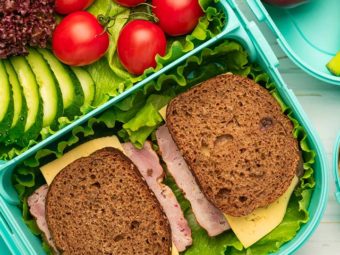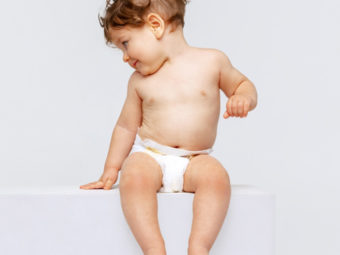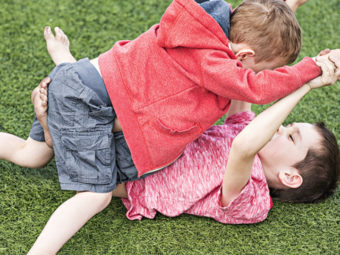
Image: Shutterstock
For the first 6 months of your baby’s life, breast milk is the only food that’s going to go into their system. Which means if you thought you only had to be careful about what you eat when pregnant and not after, think again.
The foods you eat post-childbirth can transfer to your baby through your breast milk. And if you have the eye for it, you’ll be able to see the difference your diet makes to your baby’s health after childbirth.
That said, there are certain specific ‘things’, if we may, that you pass on to your child via breast milk. Some of them are good for your baby, some of them are bad. Read on to find out what they are!
1.维生素C
It is believed that mothers who are breastfeeding should avoid citrus fruits as its high vitamin C (ascorbic acid) content can make their children gassy. But there’s no real evidence to support that! As long as you have a healthy dose of vitamin C in your diet, it’ll only prove to be beneficial for your baby, and not the opposite (1), (2). Vitamin C helps in protecting the cells and even increases iron absorption. In fact, lack of it can lead to scurvy. However, if you notice your baby acting up due to the inclusion of citrus fruits in your diet, stop immediately and consult a doctor.
2. Coffee
Coffee addiction is one that’s hard to beat. And when you have to double-triple nighttime feeding shifts, coffee is the only thing that can help you get through the rigors of the day. However, as a regular coffee drinker and a new mom, you can expect traces of coffee in your breast milk.
Don’t get alarmed! It’s not going to harm your baby and you don’t have to quit caffeine. Moderate consumption is A-OK. But if the caffeine content in your breast milk makes your baby jittery, you will have to cut down on the number of cups of caffeine you have in a day (3).
3. Chocolate
Known to be instant mood-lifters, chocolate bars can come in handy when you’re going through postpartum depression. As usual moderate to little amounts of chocolates are not a problem, but you have excess of them, it might turn into a problem for your baby.
Chocolates contain a substance known as theobromine, which has very similar effects on your body as caffeine. So if you have large amounts of chocolate, your baby may get cranky and not get enough sleep (4). In that case, discontinuing chocolates for a couple of weeks can help.
4. Medication
More specifically, orally and intravenously injected drugs are the ones that may cause trouble. Post-childbirth, your doctor may prescribe a set of medicines, especially if you have had a C-section. Generally, these prescribed medication don’t cause any harm. But in certain cases, they can make your baby colicky or cranky (5), (6). If that happens, consult your doctor to be sure whether it’s the meds that are causing these symptoms.
5. Alcohol
Generally, the highest levels of alcohol in your bloodstream are noticed after 30 to 60 minutes of drinking. And this amount of alcohol in your bloodstream is the same in your breast milk as well (7). So if you gulp down a glass of wine with your meal, avoid breastfeeding your child for at least 2 to 3 hours after having that glass or the alcohol can enter your child. Besides, regular alcohol consumption can also reduce your breast milk supply.
Most of these things are safe for consumption for both you and your baby as long as you don’t go overboard with them. If anything goes, you have your doctor on speed dial!

















